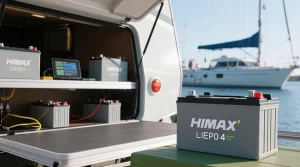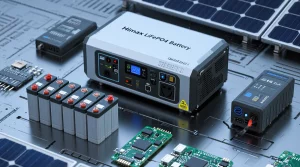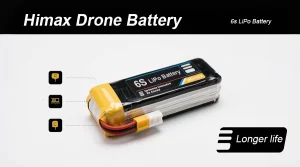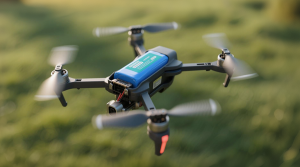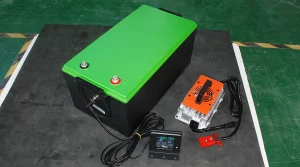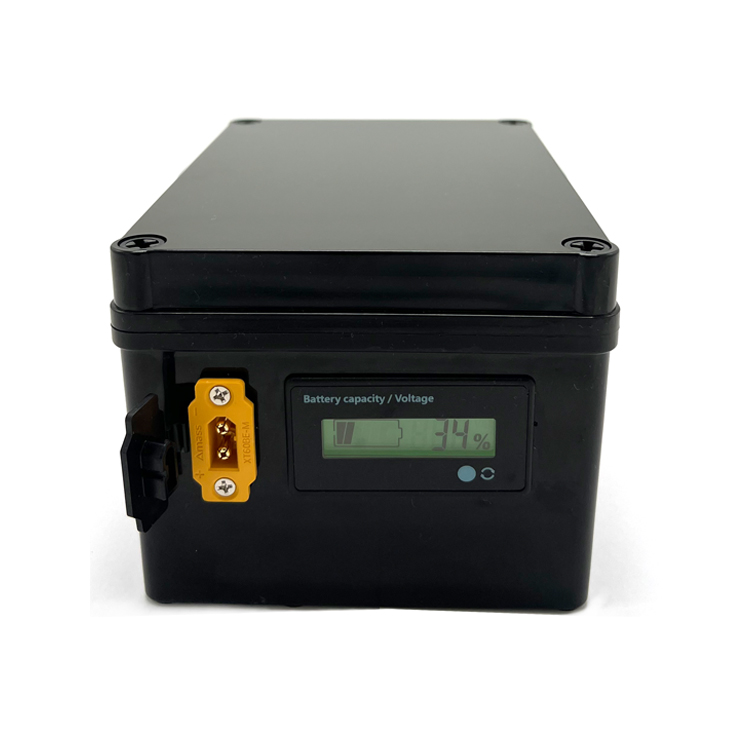1. Choosing the Right Battery for Your Application
As industries continue to demand high-performance, reliable, and energy-dense power solutions, choosing the right battery technology is crucial. Lithium-ion (Li-ion) and Lithium-Polymer (LiPo) batteries are two of the most widely used rechargeable battery types today, each offering distinct advantages.
For OEMs, bulk buyers, and industrial users, selecting between Li-ion cylindrical (18650, 21700), prismatic, or pouch-style LiPo batteries depends on factors like energy density, cycle life, form factor, cost-efficiency, and safety. This guide will help you determine which battery chemistry best suits your industry-specific needs.
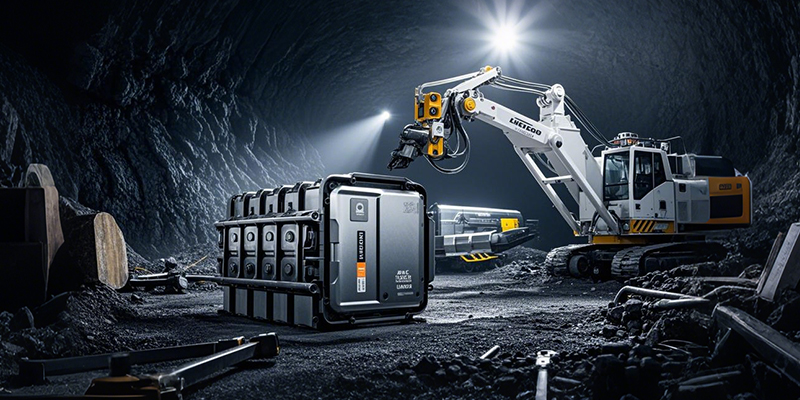
2. Understanding Lithium-Ion Batteries
What Are Lithium-Ion Batteries?
Lithium-ion batteries are rechargeable cells that use a liquid electrolyte to transport lithium ions between the anode (graphite) and cathode (various lithium compounds such as NMC, LFP, or LCO). The most common formats include:
- 18650 Cylindrical Cells – Used in power tools, EVs, and UPS systems.
- 21700 Cylindrical Cells – Higher capacity and power output for industrial and automotive applications.
- Prismatic Cells – Compact and high-energy for EVs and energy storage.
Advantages of Li-ion Batteries
- Higher Energy Density: 250-300 Wh/kg, making them ideal for longer runtime applications.
- Longer Cycle Life: Up to 1000-3000 cycles, reducing the frequency of replacements.
- Cost Efficiency: More cost-effective in bulk production compared to LiPo batteries.
- Stable Performance: Well-regulated voltage and discharge rates.
- BMS Integration: Built-in Battery Management Systems (BMS) enhance safety and efficiency.
Common Industrial Applications
- Electric Vehicles (EVs) and Hybrid EVs
- Uninterruptible Power Supplies (UPS) and Energy Storage Systems (ESS)
- Power Tools and Industrial Robotics
- Medical Equipment and Aerospace Electronics
4. Lithium-Ion vs. Lithium-Polymer: Which One is Best for Your Industry?
| Feature | Lithium-Ion (Li-ion) | Lithium-Polymer (LiPo) |
| Energy Density | 250-300 Wh/kg | 150-200 Wh/kg |
| Cycle Life | 1000-3000 cycles | 300-1000 cycles |
| Safety | More stable, with BMS protection | Higher risk of swelling if overcharged |
| Shape & Flexibility | Fixed formats (cylindrical, prismatic) | Ultra-flexible pouch design |
| Cost Efficiency | Lower cost for large-scale production | Higher due to complex manufacturing |
| Typical Use Cases | EVs, industrial tools, energy storage | Drones, RC models, slim consumer devices |
Key Takeaways:
- If energy density, cost-effectiveness, and longevity matter most → Choose Li-ion.
- If size flexibility, lightweight design, or high discharge rates are critical → Choose LiPo.
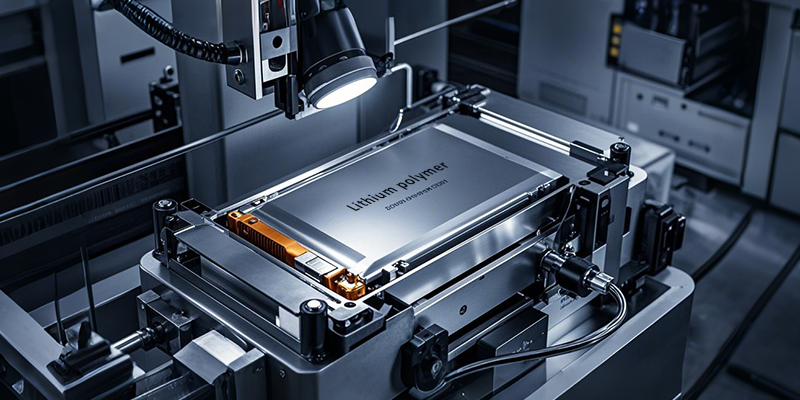
3. Understanding Lithium-Polymer Batteries
What Are Lithium-Polymer (LiPo) Batteries?
LiPo batteries use a solid polymer or gel-like electrolyte instead of liquid, allowing for a flexible, pouch-style design. These batteries are typically found in consumer electronics, drones, and other space-constrained applications.
Advantages of LiPo Batteries
- Ultra-Lightweight & Thin Form Factor: Ideal for compact and slim device designs.
- High Discharge Rates: Supports applications requiring high bursts of power.
- Flexible Design: Customizable shapes and sizes for niche applications.
Common Industrial Applications
- Drones, UAVs, and RC Models
- Wearable Devices and IoT Gadgets
- Medical Monitoring Equipment
- High-Performance Consumer Electronics
5. When to Choose Lithium-Ion for Your Business
- Best for industrial-scale applications that require high capacity and long lifespan.
- Recommended for OEMs needing standard cylindrical or prismatic cells.
- Ideal for bulk procurement buyers looking for cost-effective, reliable battery solutions.
- Perfect for energy storage, UPS systems, and EV battery packs.
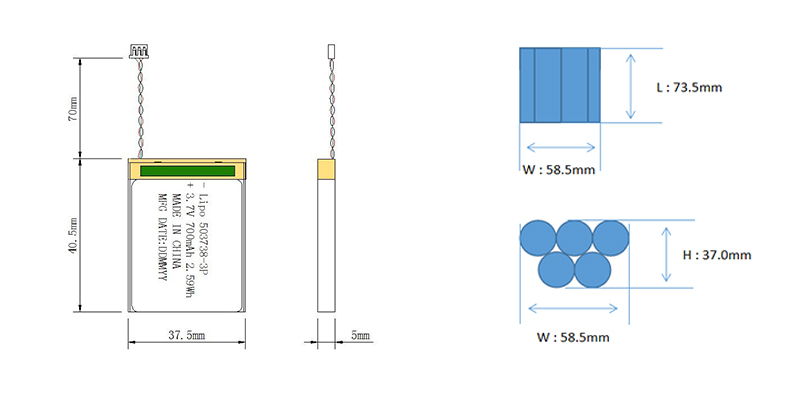
6. When to Choose Lithium-Polymer for Your Business
- Best for space-constrained, lightweight applications where shape flexibility is crucial.
- Recommended for industries prioritizing design flexibility and power bursts.
- Great for applications requiring thin, customizable, high-discharge batteries, such as UAVs, drones, and smart devices.
7. Himax Custom Battery Solutions for Bulk Buyers
Himax specializes in providing custom Lithium-Ion and Lithium-Polymer battery solutions for industrial clients, ensuring:
- Tailored battery pack design to meet specific voltage, capacity, and form factor requirements.
- High-performance 18650, 21700, and LiPo pouch cells for bulk procurement.
- Advanced BMS integration for enhanced safety and efficiency.
- Certifications including CE, RoHS, UN38.3, IEC62619 to meet global compliance standards.
- Fast bulk delivery and after-sales technical support for business clients worldwide.
8. Making the Right Choice for Your Industry
- Choose Lithium-Ion if you need higher energy density, cost efficiency, and longer lifespan.
Choose Lithium-Polymer if you need flexible form factors and lightweight batteries for compact applications.

